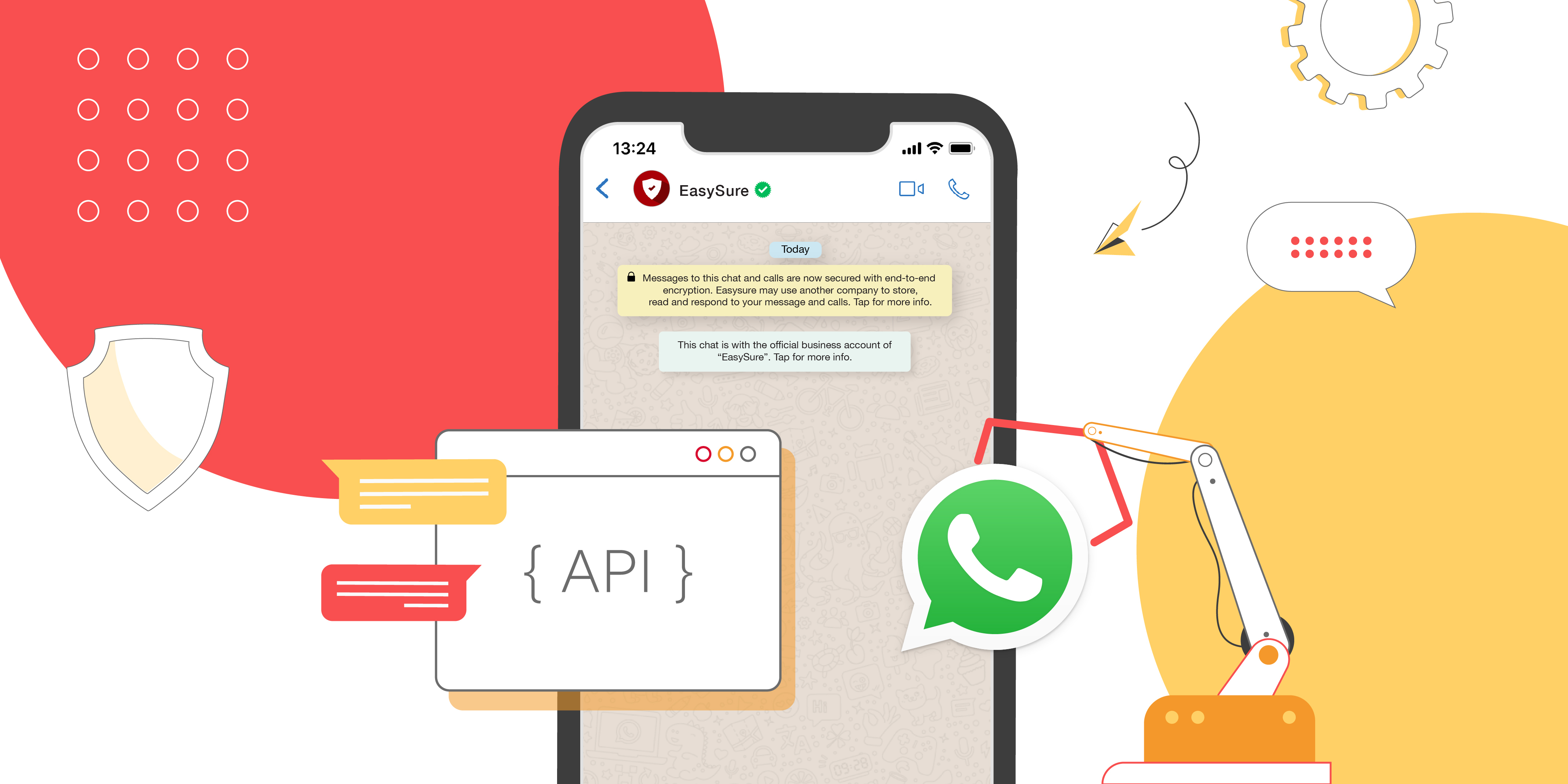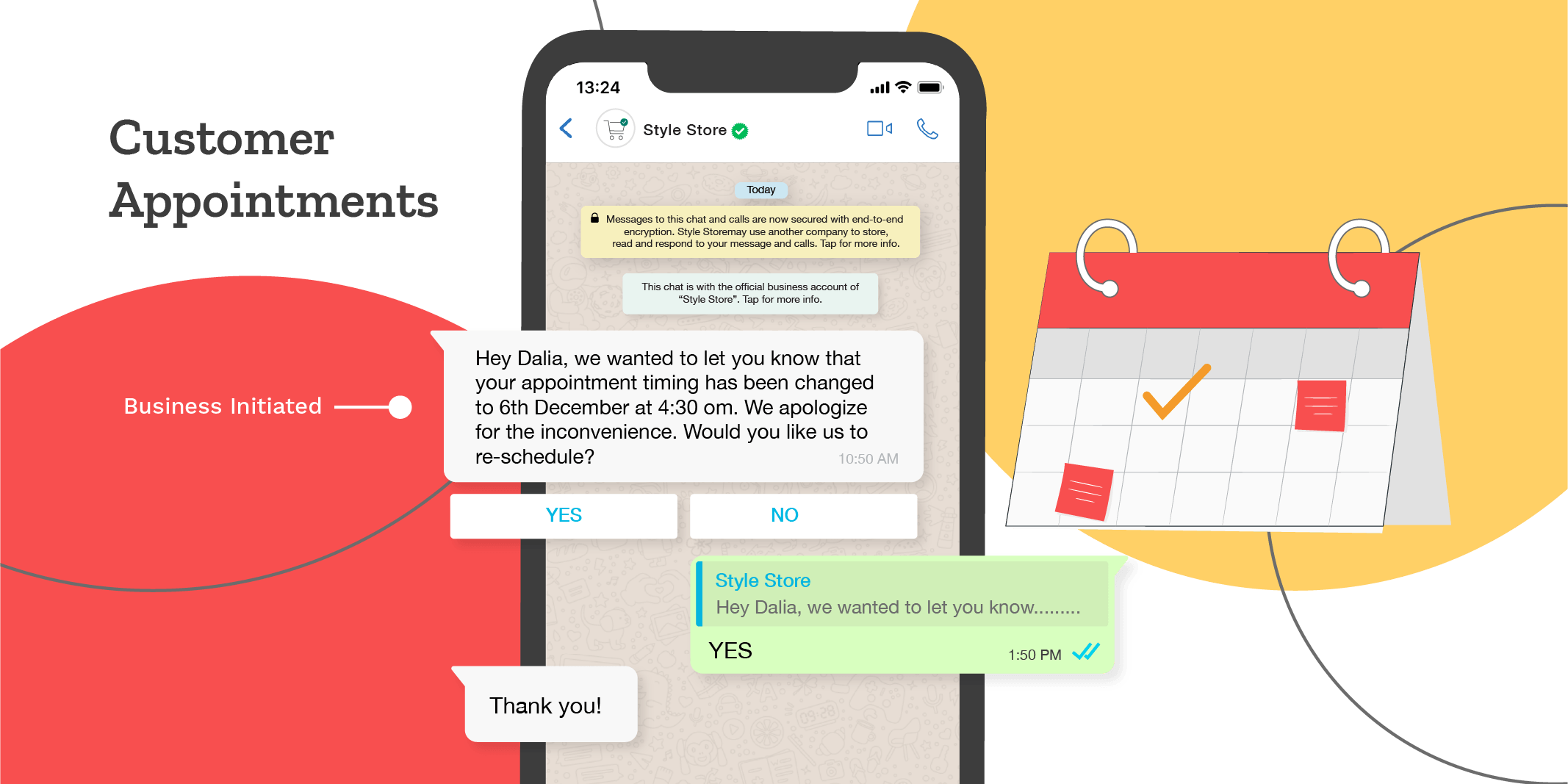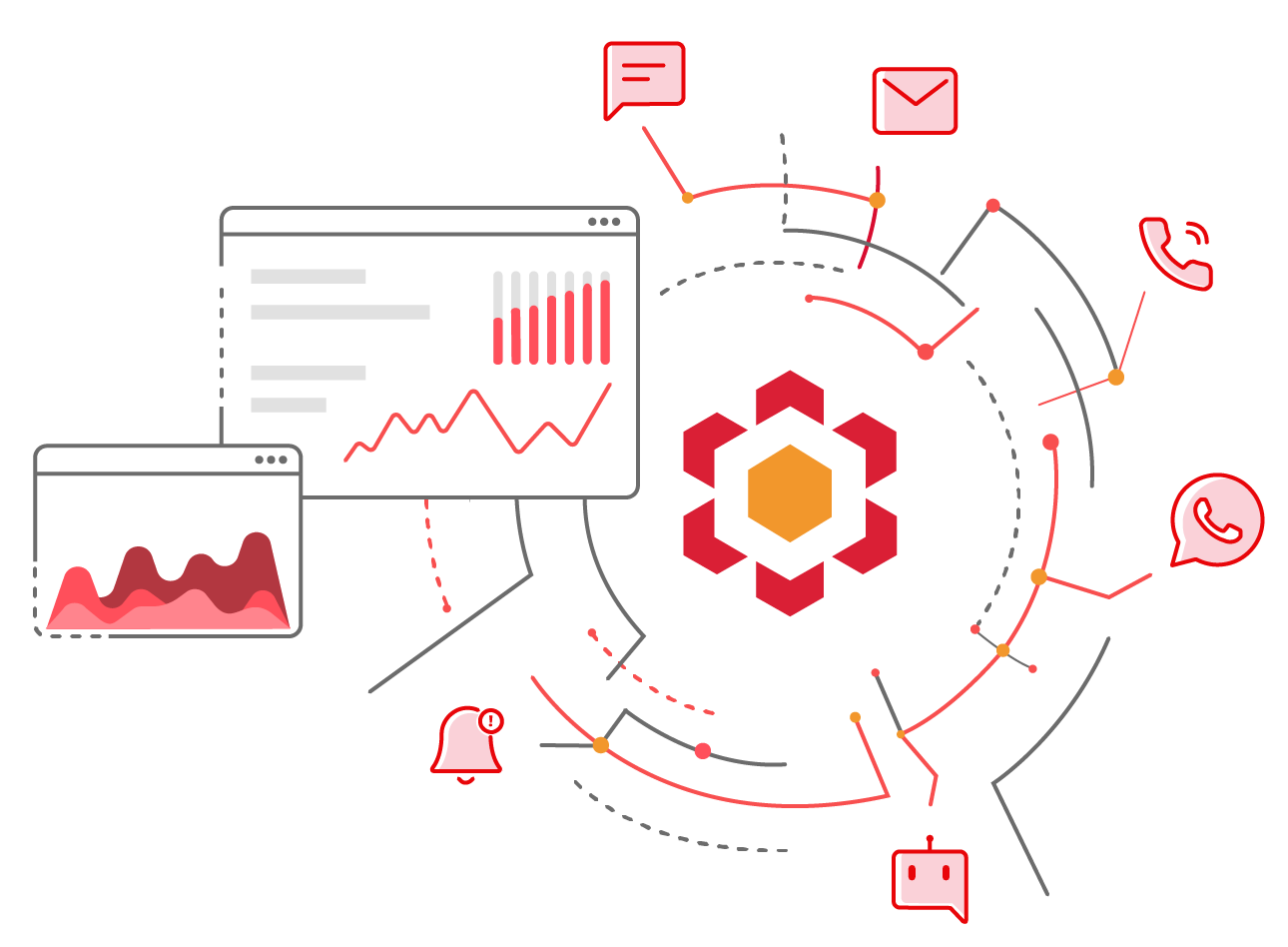
With WhatsApp Business Automation, you can bid goodbye to tedious routine tasks and say hello to a more productive and seamless workflow.
WhatsApp is one of the most used instant messaging platforms globally, boasting over 2.24 billion active users per month. While WhatsApp Business is excellent for customer communication, managing huge volumes of messages can be quite a mammoth task for most businesses. Thanks to powerful WhatsApp Business features, you can streamline your communication process, save time, and improve overall efficiency.
Automation has become an indispensable tool for businesses in today’s fast-paced world. With WhatsApp Business, you can automate customer communication, ensuring timely and accurate responses. In this blog, we discuss the benefits of automation with WhatsApp Business and explore ways to implement automation across several business departments for maximum productivity.
What is WhatsApp Business Automation?
WhatsApp Business Automation refers to the process of automating repetitive tasks and streamlining workflows using tools available in the messaging platform. With automated WhatsApp messages, you can be available 24/7 and make sure customers reaching out to you are not left without a response.
WhatsApp Business automated messages such as greeting messages, delivery updates, surveys, and FAQ answers, help boost customer engagement across various touchpoints.
WhatsApp Automation Benefits for Businesses
There are several use cases for WhatsApp automation. Let’s look at the top benefits of WhatsApp’s Automation features:
Better customer service
According to Gartner, when issue resolutions involve high effort, customers are 96% more likely to be disloyal to brands and 81% more likely to share negative word-of-mouth. However, many growing businesses struggle to keep up with high volumes of customer queries. Automating WhatsApp responses helps deliver prompt customer service beyond business hours.
WhatsApp chatbots help automate FAQ responses so that your customers get timely and accurate replies. Moreover, automating WhatsApp messages ensures round-the-clock availability, resulting in customer satisfaction.
Less response time
90% of customers say an immediate response is essential, and 60% of customers consider “immediate” to be 10 minutes or less, according to HubSpot Research. WhatsApp’s automation features help speed up your response time, leading to quick issue resolution.
Unlike manual typing, automated whatsapp business messages provide instant replies to customer queries, which may take longer. For example, if a customer wants to know the insurance plans suitable for their income range, WhatsApp messages can be pre-configured to immediately provide a list of plans. On the other hand, it can take more time for an agent to type the list or copy & paste a relevant reply.
WhatsApp is a popular channel where customers are more likely to be available to continue a conversation. In addition, unlike email conversations that may span days, WhatsApp allows quick two-way communication, considerably reducing response time.
Saves Time
84% of customer service agents are unable to answer customer queries, according to InfoLink. When agents do not readily know the answers, it delays issue resolution. However, with WhatsApp for business automation, you can set up pre-defined responses for common questions. Since customers get the answers they want instantly, it reduces the need for follow-up questions, saving agents’ time.
WhatsApp automation for business helps address queries without reliance on the customer service team, freeing up their time and reducing agent overhead. As a result, service agents can focus their efforts on high-priority tasks and engage leads close to conversion. Moreover, since WhatsApp chatbots can interact with multiple customers simultaneously, it’s a more efficient way to address customer queries at scale.
Wider Reach
WhatsApp hit the milestone of 100 billion messages daily in 2021. The massive popularity of the messaging platform makes it an effective channel for reaching diverse sets of audiences. Moreover, according to a study, WhatsApp users respond in less than a minute. Hence, with automation, you can target a broader audience in less time and encourage dialog for maximum engagement.
Reduces operational cost
Integrating WhatsApp with other business systems, such as CRM, can improve efficiency and save costs. For example, you can automate the creation of support tickets and sending reminders by setting up triggers in CRM workflows. Chatbots Magazine says businesses spend around $1.3 trillion on customer service, and chatbots can help save up to 30% of the cost.
Enhanced Customer Experience
With automation, personalization is easier because you can set up WhatsApp messages to include customers’ names or reference recent purchases. For example, if your customer has added a Christmas sweater to their cart, you can send a personalized message offering a discount for them to complete the purchase. Sending custom messages helps provide an outstanding customer experience and may result in repeat purchases. Moreover, WhatsApp for business automation ensures customers don’t have to repeat themselves, making the customer experience seamless.
Improved Conversion Rate
WhatsApp trumps other channels, such as email and phone calls, with a whopping conversion rate of 45-60%. In addition, automating WhatsApp messages help users check out and share payment options, speeding up your sales process.
You can shorten the sales cycle by sending WhatsApp Business automated messages across the customer journey. Sending personalized discounts, payment reminders, and sale alerts helps improve the conversion rate.

Automation in WhatsApp Business App vs WhatsApp Business API
WhatsApp Business app has several automation features but is suitable only for small businesses. For example, although you can automate greeting and away messages with WhatsApp business, it does not support targeted campaigns as you cannot broadcast personalized messages at scale.
To take full advantage of WhatsApp’s automation capabilities, you must choose WhatsApp business API to create custom message flows. WhatsApp message templates support proactive communication and are reusable and customizable through several variables. Moreover, you can configure the same message in multiple languages to connect with your global customers. You can use template messages as a standalone automation tool or as part of a custom chatbot sequence.
You can apply for WhatsApp API through a business solution provider like Kaleyra. Then, you can design a chatbot with AI (Artificial intelligence), rule-based mechanics, or a combination to leverage automation.
WhatsApp Automation Across Business Departments
Let’s see how WhatsApp automation can benefit different business departments.
Marketing
Marketing automation is an ever-evolving business domain. Businesses must be agile to stay on top of current trends, strategies, and innovative tools to reach the right audience. For example, WhatsApp automation for business is emerging as a sought-after tactic to attract audiences, and engage & nurture leads, setting up the stage for easy conversions.
With WhatsApp API for Business, you can get key messaging insights, such as the number of messages delivered and read. As a result, you can define a messaging strategy best suited to your business and automate campaigns for maximum benefits.
Since WhatsApp supports sharing product catalogs, images, and videos of your products in action, audio files, and PDFs, you can easily share manuals, eligibility criteria, How-to guides, comparison charts, pricing plans, and troubleshooting information. Moreover, you can personalize the offers by automating promotional messages, increasing the likelihood of sales. In addition, automated WhatsApp business messages can also help in retargeting customers based on their browsing patterns.
Sales
Engaging customers with timely WhatsApp messages helps foster positive customer relationships. With WhatsApp chatbots, you can provide proactive and contextual customer communication. The resultant meaningful engagement builds trust, leading to more sales.
WhatsApp chatbots allow you to automate interactions with potential customers, pre-qualify leads, and schedule appointments, saving time and improving efficiency. Moreover, chatbots can also help collect customer information and provide personalized product or service recommendations. With CRM integrations, leads can be routed to the right salespersons who can go on to close the sales.
Customer Support
69% of customers first try issue resolution on their own, but less than one-third of companies provide self-service options such as FAQs or knowledge bases, according to Zendesk. With WhatsApp Business API, businesses can offer a self-service channel through pre-defined responses to common queries.
Automation helps businesses eliminate long queues and delayed responses. Instead, you can provide quick and efficient support through the messaging platform. For example, with WhatsApp, you can implement chatbots to address frequently asked questions, and route complex queries to support agents when needed.
Recruitment
Messaging apps are becoming a preferred channel for candidates to reach brands regarding queries on jobs. The widely used platform enables you to reach many candidates, speeding up recruitment. Furthermore, with automated responses, you can engage multiple candidates and answer common questions about the status of applications, perks, work culture, office locations, and work policies.
Internal Communication
WhatsApp is well-known as a powerful tool for customer communication. However, it is also an efficient tool for managing employee communications and streamlining internal processes.
By automating internal communication, you can ensure that all departments are in sync and can access updated information. For example, you can onboard new employees with template welcome messaging with information kits pointing to valuable resources. Similarly, you can collect feedback regularly through WhatsApp messages and share company updates. Moreover, simplified communication with WhatsApp improves collaboration, thus increasing productivity.
WhatsApp Automation for Enterprise Businesses
In conclusion, WhatsApp business automation can be a powerful tool for enterprise businesses to streamline their communication, increase efficiency, and deliver outstanding customer experiences. By leveraging automation tools such as chatbots, businesses can offer prompt and personalized responses to customer inquiries, automate repetitive tasks , and initiative proactive customer communication.

Kalaivani Narayanan
Content Specialist
Supercharge Your Communication!
Get in touch with our experts who strive hard to bring the very best in cloud communications technology to you.

